Mangaluru, Feb 24: Several activists belonging to Democratic Youth Federation of India (DYFI) and other like-minded persons participated in a ‘Walk for Solidarity’ organised by Dakshina Kannada district unit of DYFI from Ambedkar Circle here on Tuesday, as a show of solidarity against programmes such as Hindu samajotsav.
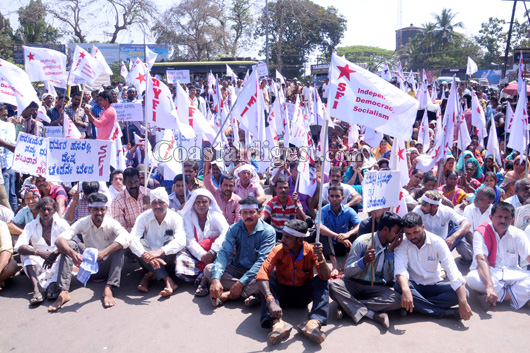
Speaking at the public meeting held in front of deputy commissioner’s office following the solidarity walk, Veerabhadra Chennamalla Swamiji of Nidumamidi Mutt said that instead of organising Hindu samajotsavas which leave behind a trail of communal clashes, rioting and violence in their wake, ‘Hindu samaja sudharotsavas’ should be organised to cleanse the Hindu society of its internal faults such as inequality among castes and oppression of lower classes.
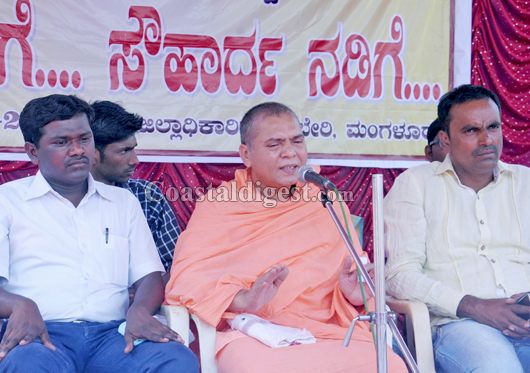
“Although there is no objection towards Hindus and Muslims organising their respective samajotsavas, such ‘utsavas’ should not encourage communal violence or give rise to communal clashes and rioting. The organisers of such utsavas merely organise them as a symbol of political power,” he said, stressing that all attempts to disrupt communal peace and harmony of the country should be vehemently opposed.
He said that people believed that causing harm and having loathing for religions other than your own was ‘Dharma’. “However, this is wrong, Heeding only about religion but not heeding the discrimination against lower classes and castes in your own religion is ‘Adharma.’ Hindu fundamentalists encouraging communal rioting and violence is not Dharma. It is this idea of causing harm to the weak and vulnerable that should be removed from the society,” he advised.
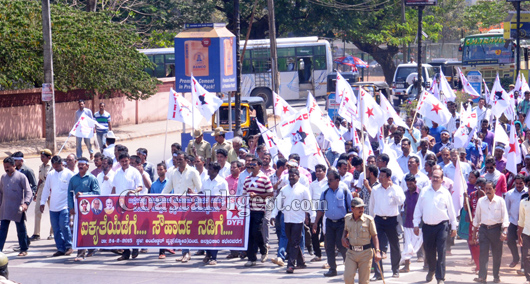
Religious fundamentalists and extremists today are giving priority to communalism and violence as means of dividing the society, thereby creating an environment of fear and turmoil in the society. “The biggest tragedy of the country is that we are listening to those voices of hatred who are trying to divide the society on communal lines,” he said, adding that Hindus and Muslims should remove the extremists and fundamentalists from their communities to walk on the path of humanity.
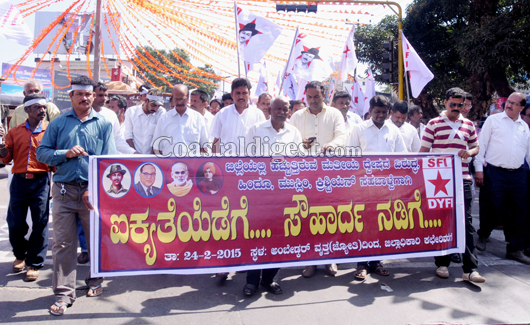
“We have stopped listening to prominent Hindu and Sufi saints who had strived to build a strong nation and played instrumental roles in reforming the society. But the fundamentalists of the present age are trying to misattribute their teachings and creating discrimination against the lower classes and gender discrimination to divide the society. They are devaluing the teachings of these saints to make them go unheeded, he said.
All those who call themselves Hindus, Muslims and Christians, should become Indians first and not look at the nation from the viewpoint of religion, he added.
‘India cannot be a one-religion state’
On the growing demand for a Hindu Rashtra by several Hindutva groups, he said that none of the freedom fighters who fought for the country had envisioned the concept of India as a one-religion state with a single official religion. “Such a state cannot be created as our Constitution states India as a secular country and advocates freedom of all religions. However, the idea of several religions living together in peace and the tradition of practicing humanity are being discarded by people who only wish for greater political power,” he said.
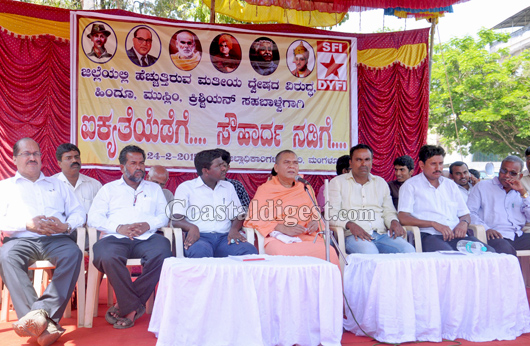
Speaking on the issue of Ghar Wapsi, Swamiji said that such reconversion programmes in the country were a major effort to retain the converted groups as vote-banks for political purposes, not necessarily with the aim of uplifting them.
‘No precautionary measures in view of Samajotsav’
Muneer Katipalla said that politicians made big statements of opposing communalism in the district before the elections, but they keep mum when communal clashes take place. The state government who banned Praveen Togadia from taking part in the Hindu Samajotsava in Bengaluru, has not taken any precautionary measures in view of the same event in Dakshina Kannada, he said.
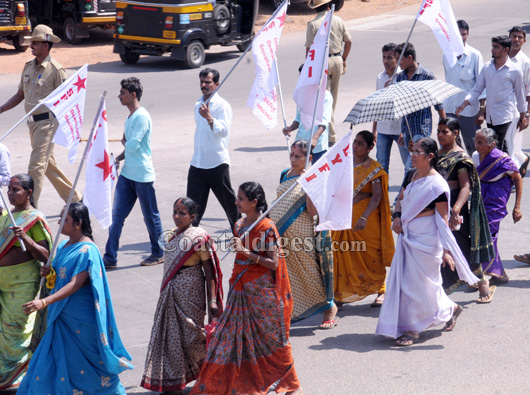
Lashing against the state government and chief minister Siddaramaiah, he said that it was the duty of the government and police department to implement strict measures to preserve the peace of the district.
DYFI leaders Dayananda Shetty, B K Imtiyaz, SFI leaders V Ambareesh and Nithin Kuthar, Dalit Sangharsha Samiti leader M Devadas, progressive thinker Chandrakala Nandavara, CPI(M) leader Vasanth Achari, Vasudeva Uchil, Yashawanth Maroli, Kirana Prabha and others participated in the solidarity walk and public meeting.






Comments
Hello there, just became alert to your blog through
Google, and found that it is truly informative.
I'm going to watch out for brussels. I'll appreciate if you continue this in future.
Lots of people will be benefited from your writing.
Cheers!
My site :: Diabetes: https://www.youtube.com/watch?v=lfVJr2RZ_LQ
Add new comment